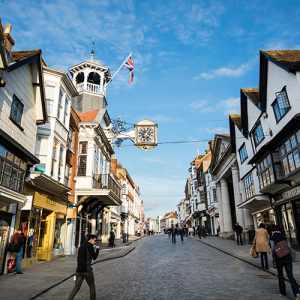25 January 2008
Beleaguered police officers took to the streets of London to protest at their staged pay award this week, while debate raged over how the service can be modernised.
The Metropolitan Police and the Police Federation each estimated that 22,500 officers marched from Hyde Park to a rally at Westminster. They were demonstrating their anger at what they see as the government's betrayal in refusing to pay in full the 2.5% pay increase recommended by the Police Arbitration Tribunal.
Police Federation chair Jan Berry said: 'All we're asking for is what the independent arbiters said was the right amount.'
But other voices said the pay dispute obscured the issue of how the police service needed to be transformed for the twenty-first century.
The service is due to come under sharp scrutiny when Sir Ronnie Flanagan publishes his review of policing early next month. Flanagan's interim report, published in September, made a series of recommendations on how policing could be made less bureaucratic, more accountable and more efficient. The Home Office said Flanagan's final report would build on these themes.
Think-tanks from both sides of the political divide joined the debate, calling for police performance to be transformed. The Left-leaning Institute for Public Policy Research called for police pay to be overhauled to reflect performance and skills rather than length of service.
IPPR senior research fellow Guy Lodge said: 'The current row over pay levels is preventing much-needed debate about how we reward police officers and how we deliver a high-performing police service.'
He added that no system was fair if it rewarded people solely on time served rather than their ability to do their job effectively. The IPPR says that, while crime has fallen since 1997, police performance over this period has not significantly improved. Despite a 25% real-terms increase in police funding since 2001, police productivity in terms of crime detection is flat.
Meanwhile, the Right-of-centre Policy Exchange issued a report, Footing the bill, saying the police were operating on foundations established in the nineteenth century and calling for urgent modernisation.
Gavin Lockhart, head of the crime and justice unit at Policy Exchange, told Public Finance that the police did not provide value for money. 'For every 100 crimes only three result in a conviction of some sort – that's clearly not good enough,' he said.
Lockhart acknowledged that workforce reform was slowly taking hold in the police, with ten National Policing Improvement Agency pilots up and running, but there was 'huge resistance' to it from the Police Federation.
'Another issue is the lack of procurement expertise. We don't believe that the Home Office and the police have learned the lessons around procurement, the Private Finance Initiative and public-private partnerships. They simply lack the expertise and negotiation skills to secure valuable deals,' he said.
Berry said both the IPPR and the Policy Exchange missed the point. 'The starting point of any review on policing should be a clear statement on the role and function of policing and the office of constable in today's society,' she said.
Home Secretary Jacqui Smith drew police ire when she refused to backdate officers' pay award to September, saying such action was necessary to keep a lid on inflation in line with the government's 2% pay limit. The federation claimed this left officers in England, Wales and Northern Ireland with an effective increase of 1.9%.
It is also the first time a home secretary has refused to ratify the arbitration panel's recommendations, which are legally binding unless she can demonstrate that imposing a lower pay award would be of national importance. The federation is seeking a judicial review of the decision.
Police have been particularly angered by the government's lack of consistency on public sector pay after schoolteachers were awarded a 2.45% increase last week. Police support staff, including the 11,500 community support officers in England and Wales, also learned that they are to receive a 2.5% pay rise, which will be backdated to September.
After the demonstration the federation met Smith to discuss a multi-year pay deal.
The demonstrating officers were addressed by new Liberal Democrat leader Nick Clegg who said police officers had been treated with contempt by the government. 'Today, the job of a police officer isn't just a battle against crime. It's a battle against the system, too,' Clegg told protesters.
PFjan2008


















